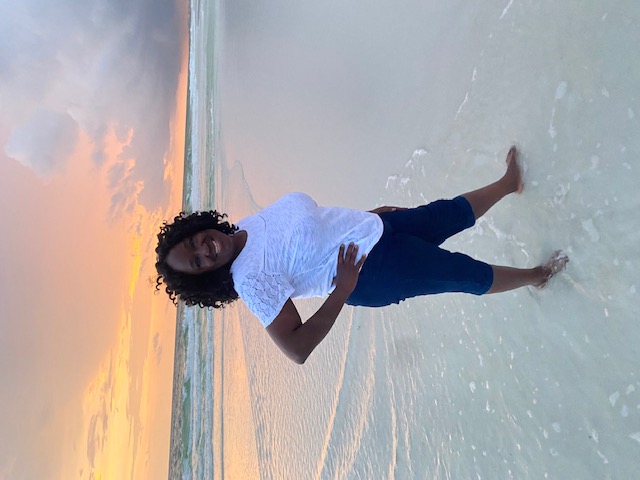From Patient to Caregiver: Serah Murumba’s Experience with Kidney Disease

In 2000, Serah Murumba was only 21 years old when she became very sick. She felt fatigued, her entire body was itchy, and she had a constant metallic taste in her mouth. She also noticed foam in her urine. Serah knew that her illness was serious enough that it needed medical attention. At the hospital, she was diagnosed with a pelvic infection and sent home, but she became violently ill as time went on. Her sister had a gut feeling that the doctors had not given Serah a thorough enough examination and took her back for further testing.
The tests revealed that Serah’s sister was right. Serah’s creatinine level was 16, which was dangerously high and signaled that her body was experiencing kidney failure. She also had elevated BUN (blood urea nitrogen) levels, which—along with high creatinine—contributed to the metal-like taste and smell of her breath. Serah was admitted to the ICU immediately.
Serah recalls that she was initially happy when she received the diagnosis because she finally knew what was wrong with her health. She was young, so she assumed that her condition would be a simple fix. However, when the doctors explained her kidney disease in more detail, she realized that it was not the case. She became afraid and began to think about whether she would survive this experience.
Serah received hemodialysis three times a week for one year. During that time, she wanted to know everything she could do to help manage her condition. She was told that she would be difficult to match on the transplant list, but she learned that Mayo Clinic had a specialty transplant program for others like her. Serah’s aunt flew to the United States, all the way from Kenya, to find out if she could potentially donate one of her kidneys, and Mayo was able to match them. In 2001, Serah received her aunt’s kidney and stayed with that transplant for several years.
While Serah was being treated for kidney disease in the dialysis clinic, she felt inspired by the nurses who were taking care of her and decided that she wanted to join them. She went to nursing school and became a nurse herself in 2007. Unfortunately, the health of her transplanted kidney was beginning to decline. Serah went back on dialysis in 2010 and started peritoneal dialysis (PD) in 2018.
Serah received her current kidney in April of 2020 and is doing well. Her journey with kidney disease was featured on Cleveland Clinic’s homepage, and one of the board members, who also works as a physician, directed Serah to NKF. Serah appreciates that NKF is so dedicated to bringing awareness to her condition and that she can use NKF’s website to connect with other people who have chronic kidney disease (CKD).
Serah’s advice to others with kidney disease is, “Start looking for your options early.” Even if they are not currently eligible for certain treatment, transplant, and dialysis options, it is still important to know about all potential avenues of care and to keep them in mind for the future.